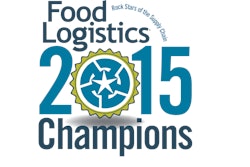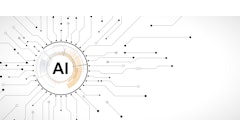Sunnyvale, Calif.—April 23, 2015—eGain, a provider of cloud customer engagement solutions, announced the findings of a commissioned consumer survey, conducted by Forrester Consulting on behalf of eGain, on the biggest pain points of customer service journeys.
Methodology
The online survey was administered to 5,000 consumers in the U.S. Respondents were asked about the worst aspects of getting help from customer service contact centers. The survey covered a broad set of industries: retail, communication service providers, banking and financial services, property and casualty insurance, health insurance, healthcare providers, utilities and government. Allowed to pick up to two options, consumers cited the following three as the biggest pain points:
- Different customer service agents give different answers (41 percent).
- Customer service agents don’t know the answer (34 percent).
- Respondents couldn’t find an answer on a website (31 percent).
Sample Findings
The research yielded insights across industries and consumer demographics such as age, gender and income groups. Here are some sample findings.
- Consistency of answers across agents: Government (56 percent) and tech-oriented sectors—technology (47 percent), cell phone (46 percent) and communications service providers (45 percent)—performed the worst in this area. Even the best–performing sector, online retail, had 33 percent of consumers complaining about this issue. This highlights the need for a unified omni-channel knowledge platform across industries.
- Agents not knowing the answer: Offline retail (47 percent) and technology sectors (47 percent) performed the worst. Again, even the best-performing sector, property, casualty and life insurance, had 25 percent of consumers complaining about this issue. There seems to be a need for knowledge management systems that are smarter as simpler questions get handled by self-service. The system would have to be available across all omni-channel touchpoints, including retail stores and branch offices.
- Findability of answers on website: Online retail (40 percent) and banks (36 percent) performed the worst. About 27 percent of consumers thought that this was a major pain point even in the best-performing sector, technology. There seems to be a huge opportunity across industries to reduce website abandonment and create service differentiation through knowledge-powered self-service.
- Younger consumers less forgiving of agents that are not knowledgeable: Approximately 40 percent of Gen Y consumers did not find agents to be knowledgeable vs. only 23 percent of seniors. Likewise, only 11 percent of Gen Y consumers found non-knowledge issues as the main roadblock to service vs. 35 percent of seniors. This is perhaps due to younger consumers knowing more and demanding more knowledgeable service.
Viewpoints
“Contact center agents need to have 30-pound brains to be able to handle the breadth and depth of today’s customer issues,” said Ashu Roy, eGain CEO. “The only viable solution to this challenge is smarter knowledge that can guide them quickly and accurately to answers and through processes.”
Current research backs this up. Ian Jacobs, Kate Leggett and Art Schoeller wrote, “Customer service managers agree that the right knowledge delivered to the customer or agent at the right time in the service resolution process is critical to a successful interaction. Done correctly, knowledge can be used to personalize an interaction, increase customer satisfaction, reduce call handle time and make operations more efficient,” in the Forrester Research, Inc., February, 2015 report TechRadar for AD&D Pros: Contact Center Solutions for Customer Service, Q1 2015.
However, in another Forrester report entitled Contact Centers Must Go Digital or Die, published on April 3, 2015, Kate Leggett and Art Schoeller wrote, “Only 44 percent of contact center decision-makers report that their firms have an agent-facing knowledge management solution. This means that agents fielding complex questions that make self-service more difficult cannot easily access the content they need to reliably answer customer questions, putting the quality of service at risk.”


















